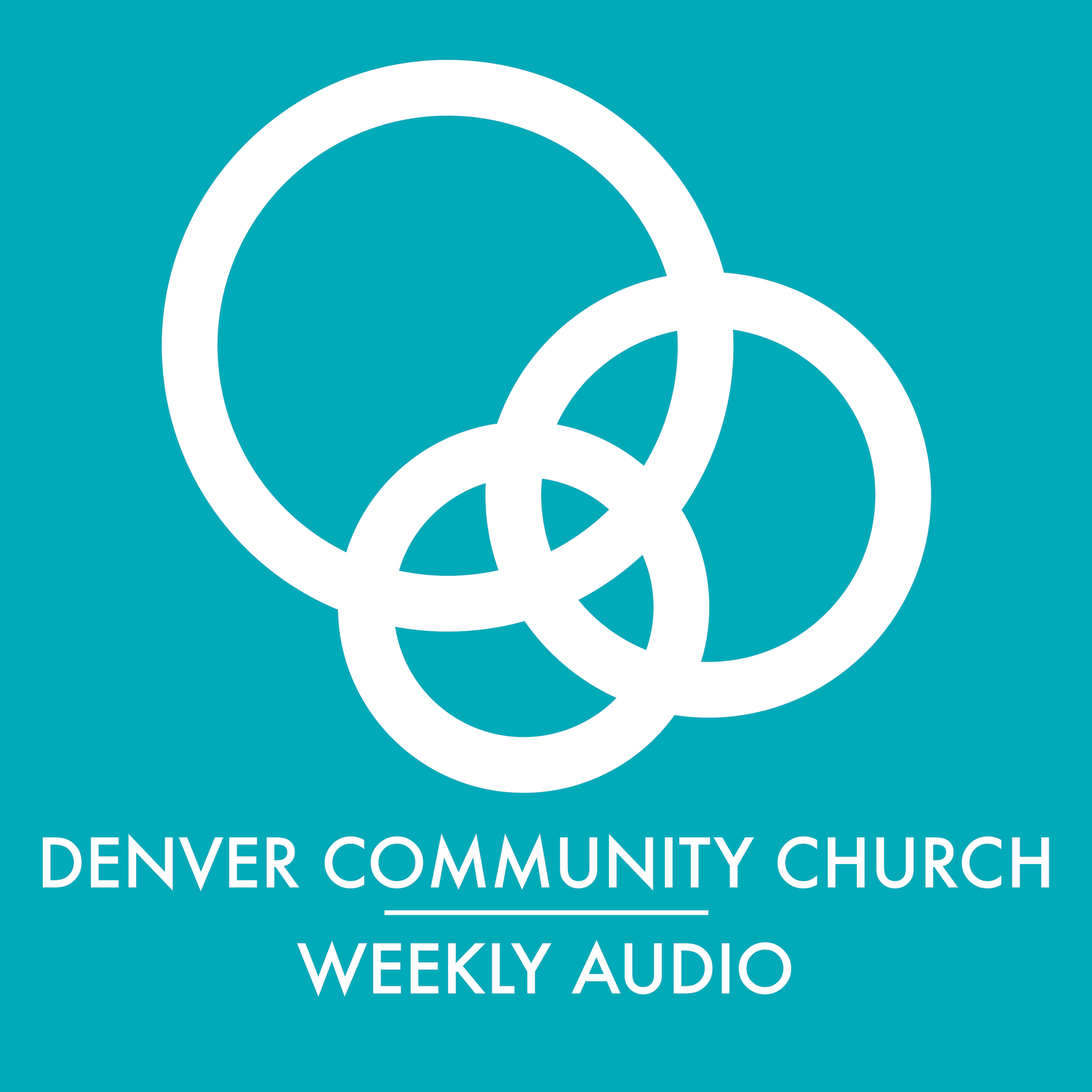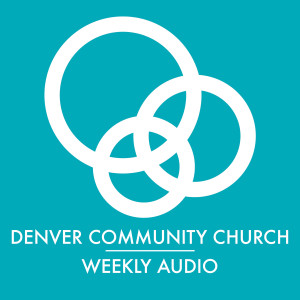
205.2K
Downloads
986
Episodes
At Denver Community Church, we explore and participate in the life of Jesus, so that we can be a healing presence in our world. Download the latest teachings here.
At Denver Community Church, we explore and participate in the life of Jesus, so that we can be a healing presence in our world. Download the latest teachings here.
Episodes

Sunday Feb 20, 2022
February 20, 2022: What Are You Waiting For - Michael Hidalgo
Sunday Feb 20, 2022
Sunday Feb 20, 2022
As we continue reading in Luke, we find two elders who rejoice after their decades of waiting is answered in the form of a baby. How is it that there was a time when we could wait decades with hope and intention, but today our patience is limited to somewhere around 3 seconds? And how might rediscovering the value of waiting open us to a whole new way of living?

Sunday Feb 13, 2022
February 13, 2022: The Extraordinary Ordinary - Bekah Stewart
Sunday Feb 13, 2022
Sunday Feb 13, 2022
As we look at the story of Christ's birth in Luke, we see a God who becomes ordinary, and is seemingly only recognized BY the ordinary. In a world where we are constantly told to be extraordinary, what freedom might exist for us in surrendering to the ordinary as Jesus modeled?

Sunday Feb 06, 2022
February 6, 2022: Naming Babies and Other Things - Michael Hidalgo
Sunday Feb 06, 2022
Sunday Feb 06, 2022
As we finish reading in the first chapter of Luke, we look at the difference between imposed peace, such as Pax Romana, and the peace that exists when creation is as it should be. This is what we call Shalom.

Sunday Jan 30, 2022
January 30, 2022: Danger Mom - Amanda Lum
Sunday Jan 30, 2022
Sunday Jan 30, 2022
When we think of Mary, many of us may picture a serene and gentle young woman in a baby blue cloak, softly staring into a manger. The picture that Luke paints of Mary happens to be anything but. Why have we set Mary aside as nothing more than a "holy womb", and what might we learn from her fierce and sacrificial way of living?

Sunday Jan 23, 2022
January 23, 2022: Yes Women - Kent Dobson
Sunday Jan 23, 2022
Sunday Jan 23, 2022
NOTE: The first few minutes of audio this week are low quality, but once the teaching begins it improves.
Mary’s story has become so common we stand to miss the larger story of Mary’s initiation. She has just said a courageous “Yes” to partner with God, but her choice forever sends her in a new direction. In a sense, she “betrays the village” and in doing so is thrown into a new world with new challenges. All the while, she carries within her the nourishment she needs, the “fruit of her womb.” And Elizabeth is there with her, as a guide, to lead her toward peace.

Sunday Jan 16, 2022
January 16, 2022: This Is Nothing New - Michael Hidalgo
Sunday Jan 16, 2022
Sunday Jan 16, 2022
When it comes to the work of God in our world there are often two ways of thinking. First is that it is all up to humanity to get the work done. This discounts the power of the Great Mystery who is always at work. The second is that we need to “just trust God” which allows us off the hook for the most part - we can simply do nothing. But what the virgin birth tells us is that God and humanity work together to bring about renewal to bear in this world.

Sunday Jan 09, 2022
January 9, 2022: No More Words - Michael Hidalgo
Sunday Jan 09, 2022
Sunday Jan 09, 2022
As we begin our study of the book of Luke, we find the priest Zechariah robbed of his ability to speak or hear so that he might observe the thing that God is doing. How might we embrace silence to welcome the movement of God?

Sunday Jan 02, 2022
January 2, 2022: How It Begins - Michael Hidalgo
Sunday Jan 02, 2022
Sunday Jan 02, 2022
As we step into a new year, we begin a new season of teaching through the book of Luke.

Sunday Dec 19, 2021
December 19, 2021: Sit At My Right Hand - Michael Hidalgo
Sunday Dec 19, 2021
Sunday Dec 19, 2021

Sunday Dec 12, 2021
December 12, 2021: A Story of the Gods - Michael Hidalgo
Sunday Dec 12, 2021
Sunday Dec 12, 2021
In this 3rd week of Advent, we look at the story of Ruth and ask, what story might we be invited into in our own lives?
